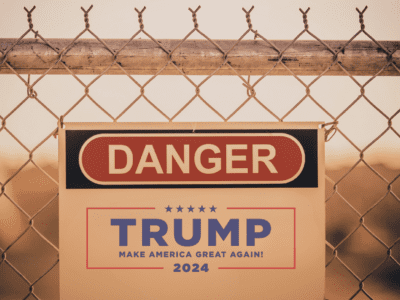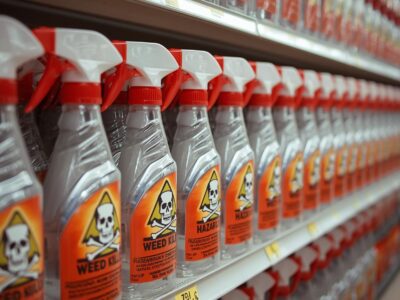How certification could reduce the environmental impacts of marijuana farms
This article from the LA Times (a few weeks old) highlights an emerging environmental problem in California – and presumably, elsewhere around the country: The negative impacts on water quality and availability and habitat from marijuana farms. Farms often use enormous amounts of water to grow their crops, without getting the necessary permits for diverting water – placing endangered salmon runs on the north coast of California at risk. There is evidence the farms use large amounts of pesticides and herbicides that can eventually make their way into waterways, posing risks to fish populations and to the people that use that water for drinking or recreation or fishing. And of course the clearing of forests for marijuana cultivation can negatively impact wildlife habitat.
This is not a new problem. There have been illegal, clandestine marijuana farms on public lands in the United States for years, creating both environmental risks as well as safety risks (as the farmers often installed booby-traps to keep the curious away from their farms). Rick highlighted this in a previous blog post.
But the problems outlined by Pure Hemp Farms in the LA Times piece are somewhat different, and probably worse. A lot of the problems are still caused by large drug cartels on public and private land (usually as trespassers). But there is also a fair amount of farming activity that is being conducted by individuals on their own land, usually small farms that are supplying the legal (at the state level) California medical marijuana market. This is troubling because, in general, these individuals do not need to be in the shadows to avoid state or local prosecution and they are highly unlikely to be targets for federal law enforcement. So the failure to acquire the relevant state and local permits for water use or to abide by environmental regulations may be less due to a fear of discovery by law enforcement, and more due to simple ignorance or disregard of the environmental impacts of their actions. That’s troubling because if the trend towards marijuana legalization continues (in this past election, voters in Colorado and Washington voted to legalize recreational use of marijuana), we might see not only an increase in marijuana cultivation, but also an increase in the environmental harms from marijuana cultivation. Indeed, the irony is that many of these farmers see themselves as counter-cultural, environmentally-friendly people and don’t understand the significant harms their actions are causing. One of the farmers profiled in the LA Times article as running a problematic farm was formerly a tree-sitter trying to protect redwood forests from logging.
It seems unlikely that more or better enforcement of environmental rules in this context can solve the problem alone – both because of limited state resources (the article notes that there are very few Fish and Game officers, for instance, available to supervise a very large territory) and also because if the local communities see environmental regulations as problematic for their business, they will oppose enforcement, making it more difficult in isolated, rural areas.
One possible solution is certification, in which growers meet minimum environmental standards in their production activities in return for receiving a certification label on their product. This kind of tool has been widely used in other areas of economic activity – for instance, Jonathan and I talked about this in the context of coffee production, and it is also widespread in the furniture and paper industries. The organic certification process for agriculture is probably the most important example of this. Certification might work quite well to deal with this problem, at least to some extent. A non-trivial proportion of the consumers of marijuana in the United States are higher-income, left-of-center, and generally sympathetic to environmental causes. An education campaign for consumers about the possible impacts of their marijuana use on the environment, and how they can reduce those impacts by buying the right kinds of marijuana could create a demand among those consumers for certified products. That demand in turn might create market pressure on marijuana growers to reduce their impacts when they grow marijuana so that they could meet the certification standard.
Certification wouldn’t be a panacea, of course. Just as in other markets, there may be many people who care more about the price of the product than environmental impacts. For this segment of the market, regulatory standards that are enforced will be essential. And as Jonathan has noted, certification standards may not be high enough to protect the environment, and the non-profits or institutions doing the certification may not adequately ensure that the standards are actually being met by certified companies.
Another problem for certification right now is the murky legal status of marijuana production: Marijuana production is illegal under federal law, even in states that have legalized its recreational or medical use. That murky legal status might make it difficult to get producers to “come out of the shadows” and get their product certified. It might also make it difficult to get contractual arrangements (which might be essential for certification systems to work) to be enforced in court. Perhaps most importantly, certification systems require systems for marketing the product so that consumers are aware of the problem, the existence of the certification system as a possible solution to the problem, and can easily identify and purchase products that are certified. But if your product is illegal, widespread public marketing programs are difficult to pursue.
So there is a way in which legalization of marijuana might reduce the relevant environmental impacts, so long as there are proactive efforts to try and build up a demand among consumers for low-impact marijuana production and develop a useful certification system. I’m not aware of any groups trying to work on this problem, but given the trend towards marijuana legalization, marijuana certification seems like an important project that someone should be pursuing.







Reader Comments